Free electric-car charging near me: Does it exist? How do you get it?
Our guide to charging your electric car without shelling out – and the situations when you should pay
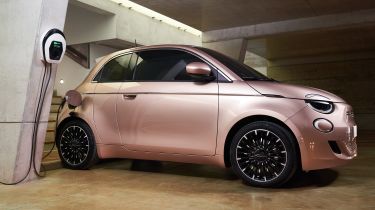
While charging your electric car can cost less than filling up with petrol or diesel, it’s generally not free. Despite being one of the cheapest ways to charge your car, recharging from home will obviously see your electricity bills rise to reflect the increased consumption of energy you’re using. Meanwhile, the prices for public charging networks continue to rise as wholesale energy prices increase.
You’re not totally out of luck, though, because while much less common than before, there are still some free electric-car charging points available in the UK.
Zap-Map estimates that around 5,430 of the 35,000 charging points on its system are still free as of June 2022. That’s 15% of its total charging points – more than you might expect. Here we’ll go through where you can still find free electric-car charging points in the UK, how you can search for them, when you should and shouldn’t use them and when it might not be the most convenient option.
Where to find free electric car chargers
If you live in Scotland, the good news is that it’s one of the best places to charge your electric car for free. Numerous charging points on the ChargePlace Scotland network are totally free to use, including dozens of 50kW rapid chargers.
However, not all of ChargePlace Scotland units are free to use, so you’ll need to check the network’s app or website for information on the individual charger you intend to use in case you have to pay for your top-up. Glasgow has the highest number of free electric chargers in a concentrated area, while cities like Edinburgh, Aberdeen, Dundee and Inverness also have a useful number of potentially free chargers.
Other places where free charging points can be found are London and the southeast of England. Rather than being the result of a specific scheme, this is mostly down to the population density of the area and the huge number of charging points in general. The majority of these free chargers are only capable of 3kW or 7kW speeds, and are designed more for overnight charging sessions.
You’ll be unsurprised to learn that more remote parts of the UK, such as Wales and the Channel Islands, have the fewest free charge points. Some local authorities have started to offer free charging in certain areas to promote the adoption of electric cars. Meanwhile, some manufacturers offer deals from time-to-time that include some ‘free’ electricity, normally equivalent to a few hundred miles of driving.
Places likely to have free car chargers
There’s no guarantee that any given place will have a free charger, as most public charging points in the UK cost money to use. However, some places have more free chargers than others.
For example, public car parks, particularly ones that serve shopping centres and supermarkets, are by far the best place to find free chargers. Tesco, Sainsbury’s, Lidl and Aldi all offer free charging points at selected locations. Tesco did partner with Volkswagen and Pod Point to install 2,400 free 7kW points in its car parks around the UK, however, as of November 2022 these are no longer free to use.

You may also find free car chargers in hotel car parks, and at attractions such as restaurants, parks, leisure centres and garden centres. Many of these chargers are only for customers of the establishment that they're connected to, however. Likewise, car dealerships often have free chargers but you might not be welcome to use them if you’re not having your car serviced or looking to buy a new car from there.
How to find free electric car chargers nearby
The best way to find a free electric car charger near you is to use an app or website that lists charging points. Services such as Zap-Map, Google Maps or Open Charge Map show you where to find electric-car charging stations, and many of the ones they list will be free to use. They should also show you if there are any restrictions on the chargers, and if any issues have been reported.
Once you’ve found a charging point, click or tap on it to see if it’s free to use or not. An app is a handy way to have access to this while you’re out and about.
When to pay for electric-car charging
It’s tempting to always want free energy for your car, but there are some situations where you should try to find a paid charger instead. If you’re on a long trip and need to fill up with electricity without stopping for a long time, then it’s best to pay for a rapid charger. If you can find a rapid car charger that’s free to use, enjoy it, but these are pretty rare.
Most free chargers are only able to fill your car at around 7kW, which would mean several hours to top up an average car. That’s not all that pleasant, especially if you’re itching to get on the move and the free charger isn’t near any kind of attraction or rest stop – for example at a hotel or on a residential street.
Of course, free charging is a big draw for many EV owners, so you may find that these chargers get a lot busier than nearby chargers that you need to pay to access. In which case, you can either wait (provided there’s space to do so) or you’ll have to pay if you want a top-up.
Recommended
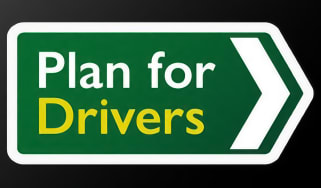
Has the UK given up on EVs? New government ‘Plan for Drivers’ says no
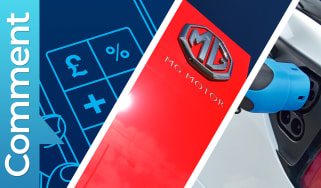
Comment: finance, funding and fuel prices means now’s the best time to buy an EV
_lkq69v.jpg)
BP Pulse opens UK’s biggest EV charging station
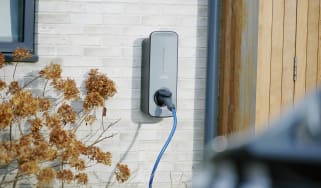
Best home electric car chargers 2023: how to choose the right EV wallbox
Most Popular

Morgan Super3 XP-1 is an electric three-wheeler
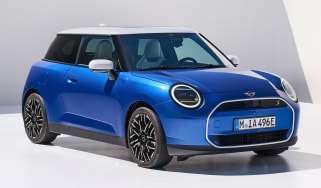
MINI Cooper Electric: pricing and specs for British-built electric supermini
